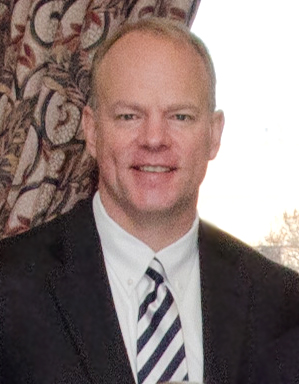 The Freedom From Religion Foundation is taking exception to the Wyoming governor’s intense official involvement in recent National Day of Prayer events.
The Freedom From Religion Foundation is taking exception to the Wyoming governor’s intense official involvement in recent National Day of Prayer events.
Gov. Matt Mead’s office had emailed every Wyoming state employee reminding them before the actual observance that Thursday, May 3, was the National Day of Prayer. On that day, there was an official ceremony in which Mead participated with many religious figures and read a National Day of Prayer proclamation.
The National Day of Prayer is a sectarian event that originated with the Rev. Billy Graham during his evangelical crusade in Washington, D.C., in 1952. He expressed an openly Christian purpose, seeking an annual prayer proclamation by the president because Graham wanted “the Lord Jesus Christ” to be recognized across the land. Subsequently, the National Day of Prayer Task Force was created to “communicate with every individual the need for personal repentance and prayer, mobilizing the Christian community to intercede for America and its leadership.” The task force issues annual National Day of Prayer proclamations and submits them to the president, choosing a theme with supporting scripture from the bible. This year’s theme is “Pray for America – UNITY” based upon the New Testament verse Ephesians 4:3.
In its announcement of this theme, the task force reveals that its idea of “unity” amounts to religious assimilation through proselytization. It writes that “our greatest need” is “the next great move of God in America,” which it hopes “will catapult the message of the gospel nationally and internationally.” The task force has a Statement of Faith that is exclusive to Christians, including that “The Holy Bible is the inspired, only, infallible, authoritative Word of The Living God” and a belief in “the spiritual unity of believers in our Lord Jesus Christ.”
As governor, Mead represents a diverse population that consists of not only Christians, but also atheists and agnostics, FFRF emphasizes. His active participation in, and promotion of, the National Day of Prayer in an official capacity sends a message of endorsement of religion over nonreligion and of exclusion to the 24 percent of Americans, including 38 percent of young Americans, who are not religious. It alienates non-Christians and nonbelievers in Wyoming by turning them into political outsiders in their own community.
“The separation between state and church is among one of the most fundamental principles of our system of government,” FFRF Co-Presidents Dan Barker and Annie Laurie Gaylor write to the governor. “The Supreme Court has specifically stated, ‘If there is any fixed star in our constitutional constellation, it is that no official, high or petty, can prescribe what shall be orthodox in politics, nationalism, religion, or other matters of opinion or force citizens to confess by word or act their faith therein.’”
Government officials can worship, pray and participate in religious events in their personal capacities. But they are not permitted to provide credibility or prestige to their religion by lending a government office and government title to religious events. Their office and title belong to “We the people,” not the office’s temporary occupant.
Government sponsorship of a National Day of Prayer event is inappropriate and unnecessary, FFRF underlines. Promotion of prayer by elected officials raises the distasteful appearance of political pandering to appeal to or appease a vocal Christian evangelical constituency, and even when other faiths are included in prayer events, the nonbelievers are still excluded.
If Mead truly wish to participate in an event dedicated to unity, he could do far better than the National Day of Prayer. FFRF encourages the Wyoming governor to stand up for the precious constitutional principle of the separation between church and state, which unites and protects all citizens, believers and nonbelievers alike.
The Freedom From Religion Foundation is a national nonprofit organization with more than 33,000 members across the country, including in Wyoming. Its purposes are to protect the constitutional principle of separation between state and church, and to educate the public on matters relating to nontheism.

